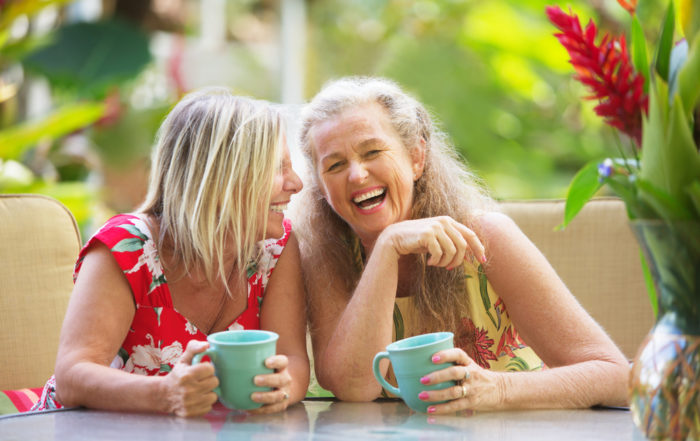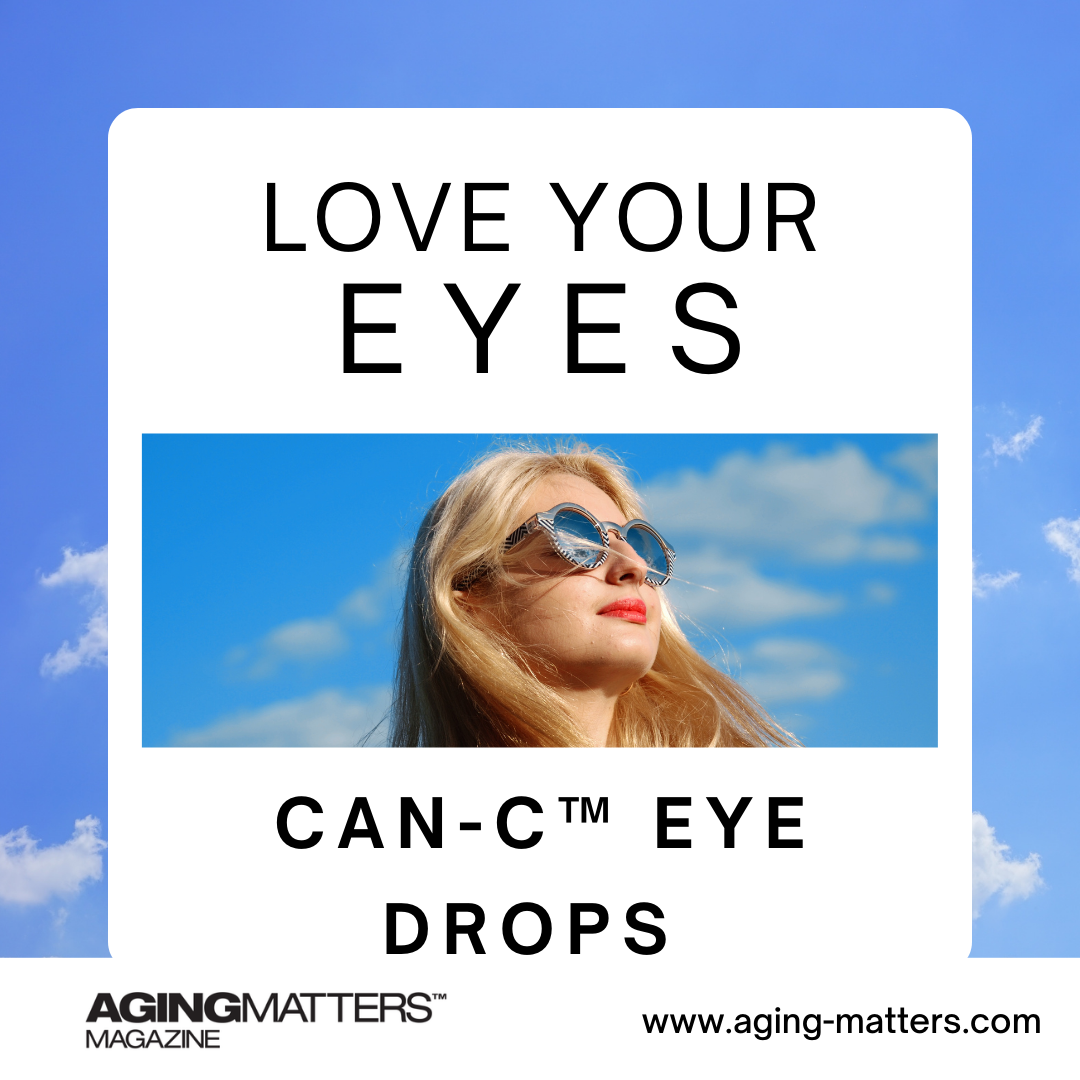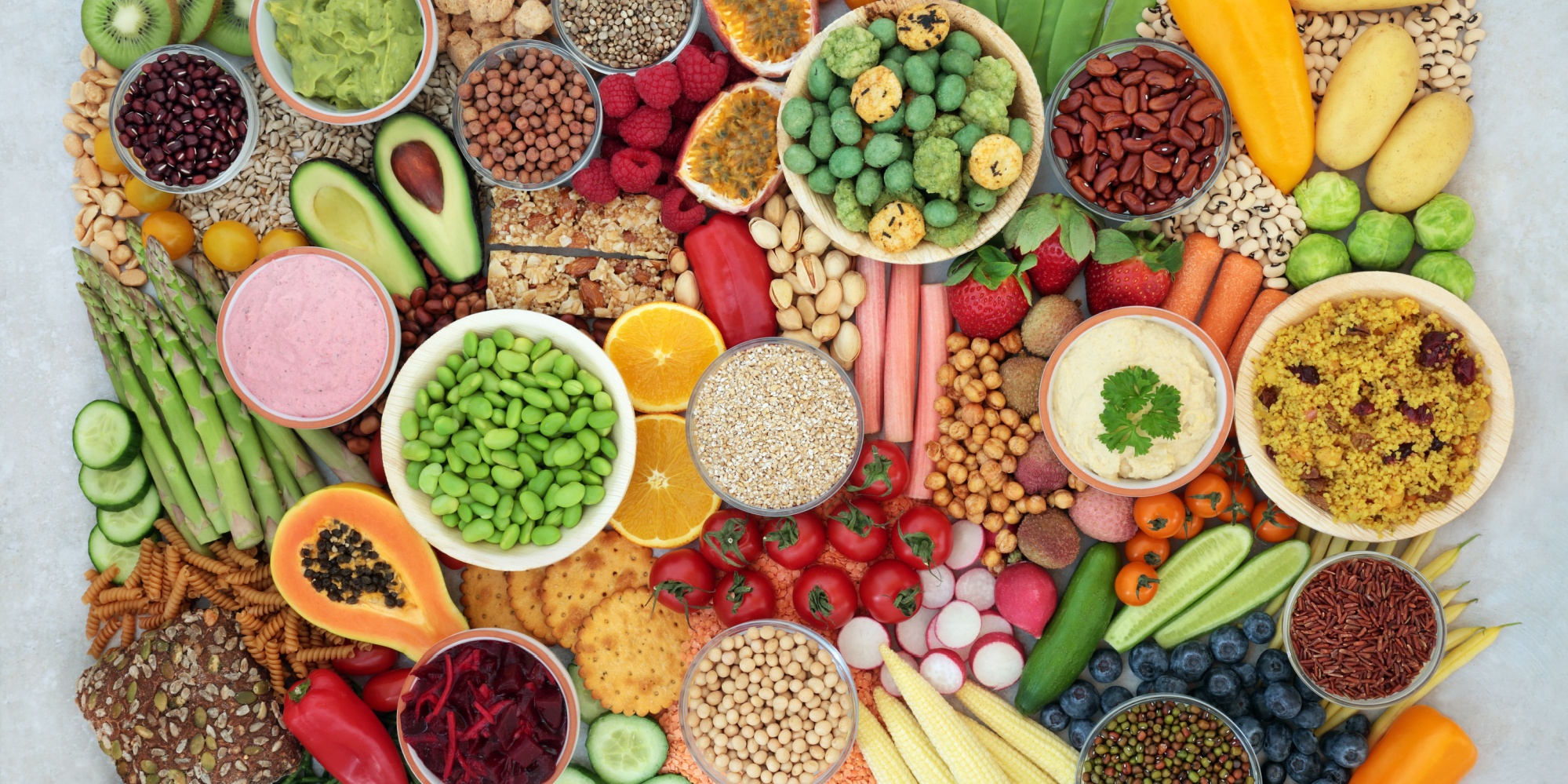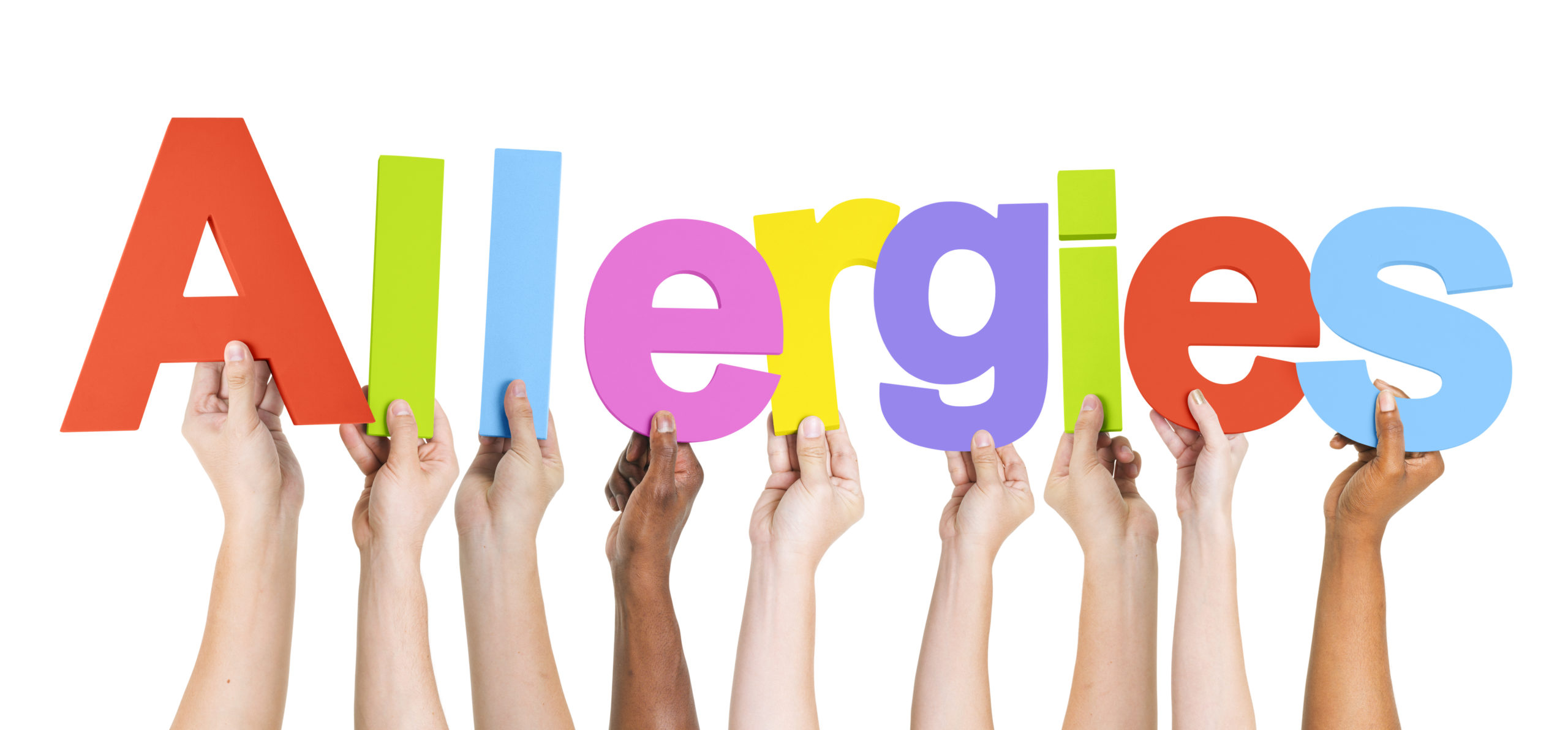
A fact file for the aging woman
July 1st, 2021The aging woman should be a beautiful woman of her age, not struggling to be younger, what you look like isn’t as important as who you are and have become. You should embrace ageing, self-acceptance and self-care will enable you to age gracefully. You can slow down the ageing process if you look after yourself and it doesn’t have to cost money or the need for surgery.
A new version of you…
The aging woman will begin to see a new version of herself in her 40s and 50s, physiologically and mentally.
Her lifestyle and hormone changes have a major impact on her body as it ages and sometimes, it’s hard to be a woman. Period pains can result in fainting, days in bed curled up in a ball, with extreme heavy bleeding. Menopause can have you flapping paper desperate to cool you down or it makes you wake up dripping with sweat in bed in the middle of the night. Smears and mammograms can be distressing and trying to pluck coarse hair from your chin with deteriorating eyesight can be a struggle. Would you rather be a man or a woman?
What was Mother Nature thinking?
Mother nature presents women with many challenges, pert breasts become hanging pears and skin starts to look like crepe paper. Emotions can become uncontrollable at times, hot flashes can sneak up when least expected and weight gain picks up pace. There’s hair loss, greying and then the invasion of unwanted coarse hair. Prominent veins and cellulite increase the need for beach cover-ups and sometimes sex isn’t as enjoyable as a gin & tonic, a bar of chocolate and a good box set. Laziness can creep in followed by slightly psychotic behaviour and a need to run away and not come back again. Not in all cases of course.
Let’s deal with this together…
I want you to grab aging by the horns and use our fact file to help you understand what mother nature is doing to you as you grow old and why. Knowledge and understanding will help you come to terms with something that you can’t stop, you can, however, slow it down and make it easier to live through.
We are amazing…
The human body is amazing, each of us has a unique physiological, physical and mental state influenced by lifestyle, DNA and aging. Every woman is different, no two women have the same physical and mental state and they are all fighting their own battles in some form, big or small – visually, internally or mentally.
Textbooks would say that our main female role in life is to reproduce, some women do, some women don’t. We live through menstrual cycles that can cripple us at times, our bodies do things that cause us concern then the majority of us face the menopause battlefield. It can be overwhelming, it feels like Mother Nature has decided to prove how strong the female race is in later years by giving us weak bladders, spare tyres around our middle and the desire to keep eating.
I was 48 when I had a full hysterectomy due to abnormally large fibroids and very heavy periods. I didn’t go straight into menopause even though I had everything taken away. I can honestly say having a hysterectomy was one of the best things I’ve done. It has given me freedom and I don’t have mood swings or any side effects. I have gained weight but partly due to lifestyle, I can’t blame it purely on having the hysterectomy. I see my friends still suffering from terrible periods, hot flashes and mood swings and I feel very lucky that I don’t have to go through that.
What is menopause?
Menopause is a natural part of ageing when a woman stops having periods and is no longer able to have babies, periods become less frequent then stop. The average age of a woman to reach menopause is 51, 1 in 100 women experience menopause before 40 years of age, it’s known as premature menopause or perimenopause. Symptoms can include hot flashes, night sweats, vaginal dryness, difficulty sleeping, low mood or anxiety, reduced libido and memory problems. Women normally experience menopause for approximately 4 years but it can differ.
Women who start to experience menopause symptoms should visit their doctor, who can perform a blood test to measure hormone levels, such as estrogen and progesterone. If treatment is needed the options are Hormone Replacement Therapy (HRT) – via oral pill, transdermal patches, a vaginal ring, creams or lubricants, In addition, Cognitive Behavioural Therapy (CBT) is recommended or a diet and exercise program.
Menopause is caused by a change in the balance of the body’s sex hormones as a woman ages. It happens when ovaries stop producing the hormone estrogen and don’t release an egg each month. Premature or early menopause can happen and there isn’t a clear indication as to why but it can be brought around by an illness or condition. Find out more about our hormone replacement products.
What is estrogen?
Estrogen is a category of sex hormone responsible for the development and regulation of the female reproductive system and secondary sex characteristics. Three major endogenous estrogens have estrogenic hormonal activity: estrone, estradiol, and estriol.
What does progesterone do?
Progesterone is a hormone that prepares the endometrium for the potential of pregnancy after ovulation. It thickens the lining of the womb in preparation to accept a fertilized egg. It also stops the muscle contractions in the uterus that would reject an egg. If the body is producing too much progesterone, it will not ovulate.
Why do women gain weight as they age?
The metabolic rate (rate of energy expenditure) starts to decline as a person ages predominantly in their 30s, naturally putting 1-2 pounds on in a year. Gaining weight can be counterbalanced by lifestyle changes, a change in diet and an exercise program. For ageing women, hormonal changes also play a part in weight gain and increased fat deposits on the belly.
How does the hormone insulin affect a woman’s weight gain?
Insulin is a hormone that regulates the levels of glucose in the blood (blood sugar). The hormone works by helping the body’s cells to absorb glucose. Insulin causes weight gain when the cells absorb too much glucose and the body converts it into fat. As we age our body produces less insulin, people can use dietary and lifestyle changes to prevent insulin-related weight gain. Getting regular exercise and eating unprocessed foods, such as fruits, vegetables and whole grains may help prevent excess fat storage.
Why do women get weak bladders as they age?
It is common for women to experience bladder issues, as they age they can experience urine leakage and urinary infections (UTIs). With age, the walls of the bladder change, they become stiff, less stretchy so a person cannot hold as much urine anymore. For a woman, the weakened bladder muscles cause the bladder or vagina to fall out of position (prolapse). Try Nature’s Marvels bladder bioregulator, which normalizes the function of the bladder.
Why do women get lumps and bumps in the breasts?
As a woman ages, her breasts lose firmness, change shape, shrink and become prone to abnormal growths and lumps. These can be harmless like cysts but they can also be an indicator of breast cancer. A drop of estrogen in women when they go through menopause can cause lumps and bumps in and around the breasts. Self-checking of the breasts is vital for early diagnosis of breast cancer and treatment.
Why do women get brittle bones (osteoporosis)?
Women are at more risk of developing osteoporosis than men because the hormone changes that happen during menopause directly affect bone density. Estrogen is essential for healthy bones , and a rapid decrease in the production of the hormone results in a rapid demineralization of the bones. Try Nature’s Marvels cartilage bioregulator which normalizes the function of the musculoskeletal system or PainPro, the all natural pain killer that helps with chronic pain.
What causes skin wrinkles?
Wrinkles are natural folds in the skin which normally start on the face because of facial expressions. Young skin pings back but ageing skin loses its flexibility this is due to the decreasing production of the protein collagen. Sun exposure from ultraviolet rays, hydration, smoking, medications, the environment and genetics can also affect the elasticity of the skin.
What causes vaginal dryness?
A woman’s vagina changes during menopause and she can experience vaginal dryness, the hormone estrogen keeps the tissues of the vagina moist and healthy. When estrogen levels drop, the tissues start to dry up. The dryness can make sexual intercourse uncomfortable and painful. Try MSH-2 for increased libido.
Why does an ageing woman’s blood pressure go up?
In most cases, blood pressure increases after menopause, this could be linked to the change in hormones. It can also be the result of an increase in body mass index which is common in ageing women. Some types of hormone therapy (HT) given for the side effects of menopause can also lead to higher blood pressure. Try Nature’s Marvels heart bioregulator to help conditions such as hypertension.
Why should you drink lots of water?
Your body needs water to regulate temperature, to get rid of waste products and to lubricate joints. Staying hydrated is particularly important as you get older otherwise you could be at risk of constipation, electrolyte imbalances, kidney problems or loss of balance. People are a lot more aware of the importance of drinking water, it can affect mood swings, the texture of the skin and the ability to exercise. A lot of women increase their consumption of alcohol and caffeine as they age which increases the risk of dehydration.
How can stress and anxiety affect ageing?
For some women, anxiety and stress increases with age for many reasons including lifestyle and hormonal changes. Your body contains telomeres, they are a widespread genetic feature that shortens during the ageing process. Anxiety speeds up that process resulting in premature aging. Try Picamilone which is an anti-anxiety supplement to energise and calm.
What happens to a woman’s digestive system as she ages?
As you age, there is an increased chance of digestive disorders. It is common for women to experience bloating or develop allergies that affect their stomach.
Sometimes there is a change in bowel habits because the digestive process slows down as we age. Constipation can be a problem caused by either medication, dehydration, lack of exercise or diet. Inflamed pockets in the digestive system can form, causing heartburn, pain, bleeding or other uncomfortable ailments. Try Nature’s Marvels stomach bioregulator, It normalizes the digestive system.
How can a woman’s hair change with age?
Women can experience hair loss as they age, it’s a similar type of baldness to men and known as female-pattern baldness. Most people’s hair goes grey as they age, the scalp becomes more visible and the hair less dense. Women’s facial hair gets thicker too, normally around the chin.
Why do some women suffer from a degree of memory loss as they age?
Hormonal changes can cause issues with memory and concentration but it isn’t normally a problem. However dementia is not a normal part of ageing, it’s the loss of cognitive functioning – thinking, remembering, learning and reasoning. Sometimes there can be problems with language, visual perception or paying attention.
Why do we have teeth and gum issues as we age?
Older adults are more at risk for dry mouth, this can occur because of age, medicine use, or certain health conditions. Receeding gums are common in older adults, this is when the gum tissue pulls away from the tooth, exposing the base, or root, of the tooth. This makes it easy for bacteria to build up and cause inflammation and decay.
Gingivitis is an early type of gum disease. It occurs due when plaque and tartar build-up and irritate and inflame the gums. Severe gum disease is called periodontitis. It can lead to loss of teeth.
Try OraltidePro – Peptide based dental care, that helps with periodontal disease and enamel remineralization.
Why do women get fibroids?
Fibroids are muscular tumours that grow in the wall of the uterus (womb). Fibroids are almost always benign (not cancerous). Not all women with fibroids have symptoms. Women who do have symptoms often find fibroids hard to live with, some have pain and heavy menstrual bleeding.
Diabetes – what symptoms can women experience?
Diabetes is a group of metabolic diseases when a person has high blood sugar due to problems in processing or producing insulin. It can affect people of different ages but is more common with ageing because of lifestyle, health and diet. Symptoms can be different in women, such as an overgrowth of yeast in the vagina, urinary infections, sexual dysfunction or polycystic ovary syndrome.
Why do women get so emotional?
Menopause can cause a woman to be emotional and to have mood swings, anxiety and low energy. This is a result of the body producing less estrogen and progesterone. Lack of sleep from night sweats and hot flashes can also affect mood. A woman can become more sensitive to life changes such as children growing up and leaving home, looking after ageing parents or facing the loss of parents. Relationships can suffer, therapy may be needed such as Cognitive Behavourial Therapy (CBT).
Exercise as we age…
Our lifestyles change as we age, a lot of people become less active and gain weight. Women tend to put on weight because of the hormonal changes of menopause, especially more belly fat. Exercise improves our cardiovascular system and assists lots of other functions that our body does. It strengthens the muscles that support our skeletal structure, boosts moods and is an excellent activity to help reduce stress and anxiety. Women over the age of 50 should aim for at least 150 minutes of moderate activity a week. Try NitricPro, a pre-workout drink that boosts energy, fights fatigue and also has numerous benefits for your cardiovascular health.
A women’s ageing journey can be tough but it can be made easier by implementing the following:
- Eat a healthy diet
Research has revealed that a Mediterranean diet is ideal to help the ageing process. A diet that is high in protein, low in cholesterol and low in refined sugars is best. A healthy eating plan should include different fruits, vegetables, nuts, seeds and olive oil. Portion sizes should be smaller as you age, water intake should be higher and caffeine and alcohol should be limited
- Exercise
Sit less, do more! Try to do physical exercise 3-5 times a week. It’s very important to include resistance training in your fitness regime. Don’t over do it and have periods of rest in between exercise sessions. As you age it’s essential to listen to your body
- Have a routine
Stick to a routine including your sleeping pattern, eating regime, exercise schedule, rest and relaxation. Some people as they age become lazy and if you have a routine to stick to, that will help to prevent that
- Self-care and wellbeing
Physical and mental well being is really important. Make time for things that help you relax such as mediation, yoga or simple breathing exercises. Socialise with people, join clubs or groups and seek expert advice if you want to try therapy such as, CBT for example. Be aware of changes in your body and see your doctor if you feel something isn’t right. Make time for leisurely breaks and be open to changes
- Relationships
As you age, life changes and it can affect the relationships that you have with people. You might be experiencing exhaustion from parenting or upset from empty nesting when the children leave home. Friends may come and go, family may cause upset and stress, either way your physical and mental health should be a priority.
As you age and your body changes, physical relationships with a partner may change too, especially during menopause when hormones are depleting. If you have concerns talk to someone and try to work through any issues with guidance if required
You cannot avoid it but your lifestyle choices may slow down or speed up the process. So, the key to ageing for women is to understand the process, adapt accordingly and be the best version of you that you can be.
References/ Further Reading:
1. https://www.nhs.uk/conditions/menopause/I
2.https://www.hormone.org/your-health-and-hormones/glands-and-hormones-a-to-z/hormones/progesterone
13.https://www.nia.nih.gov/health/memory-forgetfulness-and-aging-whats-normal-and-whats-not








